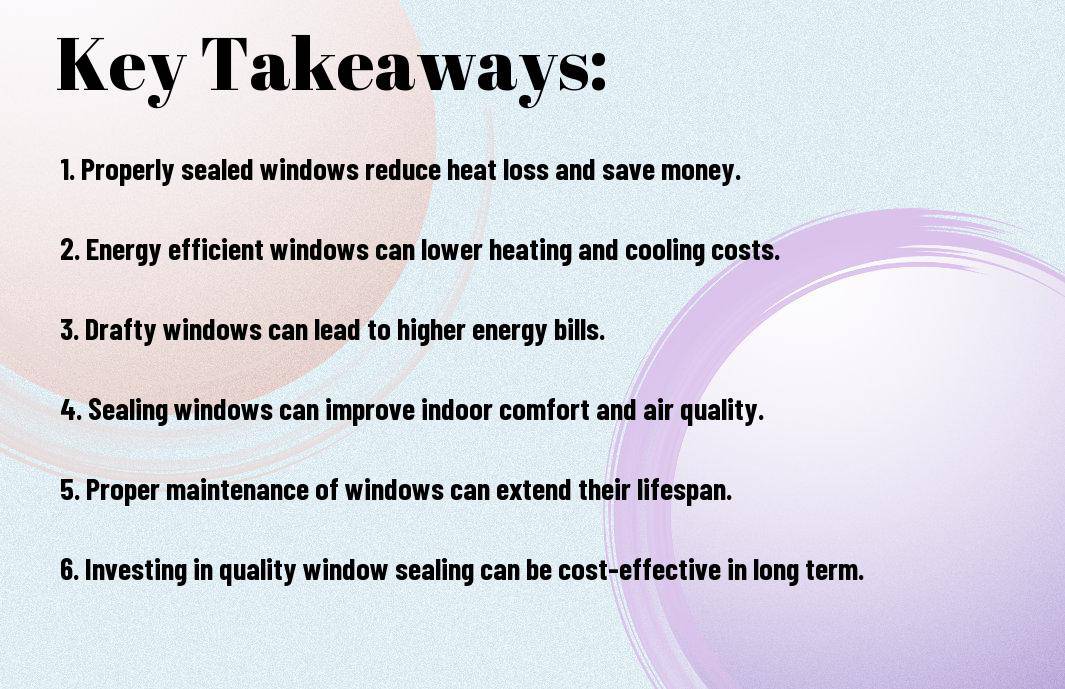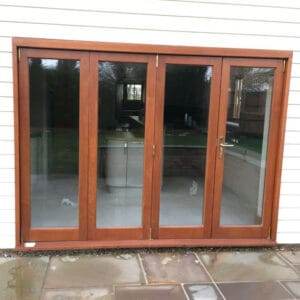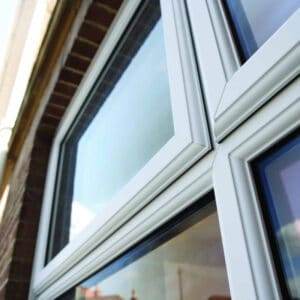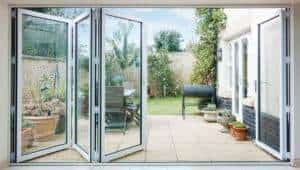Obtaining adequately sealed windows for your home may seem like a mundane task, but the impact it can have on your energy bill is anything but insignificant. Properly sealed windows play a crucial role in maintaining the energy efficiency of your home, ultimately saving you significant amounts of money in the long run. In this blog post, we will explore the various ways in which properly sealed windows can affect your energy bill, from reducing heat loss in winter to preventing air conditioning leakage in summer. Understanding the importance of this simple home improvement can empower you to make informed decisions when it comes to ensuring the energy performance of your living space.
Key Takeaways:
- Properly sealed windows can significantly reduce energy consumption and lower your energy bill.
- Leaky windows can lead to heat loss in winter and heat gain in summer, causing your energy bills to increase.
- By investing in professionally sealed windows, you can improve the energy efficiency of your home and save money in the long run.
- Properly sealed windows can also enhance the comfort of your home by reducing drafts and outside noise.
- Regular maintenance and sealing of windows can contribute to a more sustainable and environmentally friendly lifestyle.

Understanding Window Sealing
Properly sealed windows play a crucial role in maintaining the energy efficiency of your home. Understanding the impact of window sealing can help you make informed decisions that can save you money on your energy bills.
What Does Properly Sealed Windows Mean?
Properly sealed windows refer to the condition where the window frames and panes are tightly sealed to prevent any air leakage. This means that there are no gaps or cracks around the window that could allow for the exchange of air between the interior and exterior of the building. Properly sealed windows are essential for maintaining the energy efficiency of a building, as they help to regulate the indoor temperature and reduce the need for excessive heating or cooling.
Different Types of Window Seals
There are several types of window seals that can be used to ensure proper sealing. Common types of window seals include weatherstripping, caulking, and magnetic seals. Weatherstripping is an effective method for sealing movable parts of the window, while caulking is used to seal the gaps and cracks around the window frame. Magnetic seals are often used for double-hung windows to ensure a tight seal. Understanding the different types of window seals is important for selecting the most suitable option for your windows.
- Weatherstripping – used to seal movable parts of the window.
- Caulking – used to seal gaps and cracks around the window frame.
- Magnetic seals – effective for double-hung windows to ensure a tight seal.
Understanding the different types of window seals is important for selecting the most suitable option for your windows. Thou, incorrect or deteriorating seals can lead to increased energy consumption and reduced comfort within the building. It is vital to regularly inspect and maintain the window seals to ensure optimal performance.
Analysing Energy Bills
When it comes to understanding the impact of properly sealed windows on your energy bill, it’s essential to start by analysing your energy bills. This will give you a clear picture of how much energy you are using and where you may be able to make improvements.
How Windows Affect Energy Bills
Windows play a crucial role in the energy efficiency of your home. Properly sealed windows help to prevent heat from escaping in the winter and entering in the summer, reducing the need for excessive heating and cooling. On the other hand, poorly sealed windows can lead to drafts and heat loss, resulting in higher energy consumption and increased costs. Understanding the impact of your windows on your energy bills is key to effectively managing your energy usage.
Reading and Interpreting Your Energy Bill
It’s important to be able to accurately read and interpret your energy bill in order to identify any trends or areas for improvement. Look for details such as your overall energy usage, peak usage times, and comparison with previous bills. By understanding the breakdown of your energy consumption, you can pinpoint any areas of concern and take steps to address them, potentially saving you money in the long run.
When reading and interpreting your energy bill, pay close attention to the unit rates and standing charges, as well as any additional fees or discounts. These details can provide valuable insight into your energy spending and help you make informed decisions about your usage habits.
Benefits of Proper Window Sealing
Properly sealing your windows can have a significant impact on your energy bills and the overall comfort of your home. By preventing air leaks and improving insulation, you can reduce the impact of open windows on energy consumption, resulting in long-term energy savings and a more sustainable living environment.
Improved Insulation and Reduced Heat Transfer
One of the key benefits of properly sealed windows is improved insulation, which helps to reduce heat transfer. This means that during the colder months, less heat will escape from your home, leading to lower heating costs. Similarly, during the warmer months, the improved insulation will prevent hot outdoor air from entering your home, reducing the need for excessive air conditioning and further lowering your energy bills.
Other Benefits Beyond Energy Savings
Proper window sealing doesn’t just impact your energy bills; it also provides other significant benefits. By creating a more airtight environment, properly sealed windows can reduce the infiltration of outdoor pollutants, dust, and allergens into your home, improving indoor air quality and respiratory health. Additionally, it can also help to minimise condensation and moisture build-up, preventing potential damage to your windows and surrounding walls.
Overall, investing in proper window sealing can lead to a more comfortable and healthy living environment, reducing the need for excessive heating and cooling while enhancing the overall sustainability of your home. With these positive impacts in mind, it’s clear that properly sealed windows are a worthwhile investment for both your finances and your well-being.

Solutions and Recommendations
Properly sealed windows are crucial for maintaining energy efficiency in your home. In this chapter, we will discuss solutions and recommendations for addressing poorly sealed windows and implementing best practices for sealing windows to reduce energy loss and lower your energy bill.
Identifying Poorly Sealed Windows
It’s important to be able to identify signs of poorly sealed windows in your home. Look for drafts coming from around the window frames, condensation or fogging between panes, and increased energy bills that could indicate air leakage through the windows.
Another way to identify poorly sealed windows is by performing a simple visual inspection of the window frames and seals, looking for any cracks, gaps, or damage that could be allowing air to escape.
Best Practices for Sealing Windows
When it comes to sealing windows, it’s essential to use high-quality weather-stripping materials and caulk to seal any gaps or cracks around the window frames. Ensure that the seals are tightly fitted and securely in place to prevent air leakage. Additionally, installing double-glazed windows can significantly improve insulation and prevent heat loss.
Regular maintenance of window seals and frames is also crucial. Periodic inspections and repairs can help to maintain the integrity of the seals and prevent any potential energy losses.
Implementing these best practices for sealing windows will not only reduce your energy bills but also improve the overall comfort and efficiency of your home. By addressing poorly sealed windows and adopting effective sealing techniques, you can create a more sustainable and eco-friendly living environment.

The Impact of Properly Sealed Windows on Your Energy Bill
Properly sealed windows have a significant impact on your energy bill, helping you to save money and reduce energy consumption. By preventing drafts and leaks, well-sealed windows maintain a consistent indoor temperature, reducing the need for excessive heating or cooling. This not only lowers your energy expenses but also contributes to a more sustainable and environmentally friendly lifestyle. For more insights on the impact of windows on your energy bill, visit How Bad Windows Impact Your Energy Bill – Urban Exteriors
. With proper maintenance and regular inspections, you can ensure that your windows remain in optimal condition, maximising their energy-saving benefits and improving the comfort and efficiency of your home.
FAQ
Q: How do properly sealed windows impact my energy bill?
A: Properly sealed windows can significantly reduce heat loss in the winter and cool air loss in the summer, leading to lower energy bills.
Q: What are the signs of poorly sealed windows?
A: Signs of poorly sealed windows include drafts, condensation on the inside of the glass, and an increase in energy bills.
Q: How often should I check and maintain the seals on my windows?
A: It is recommended to check and maintain the seals on your windows at least once a year, preferably before the start of the winter season.
Q: Can I seal my windows myself, or do I need to hire a professional?
A: While some small repairs can be done by homeowners, it is often best to hire a professional to ensure that the seals are properly installed and effective.
Q: What are the long-term benefits of properly sealed windows on energy efficiency?
A: Properly sealed windows not only lead to immediate cost savings on energy bills but also contribute to a more comfortable living environment and reduce the overall carbon footprint of your home.













